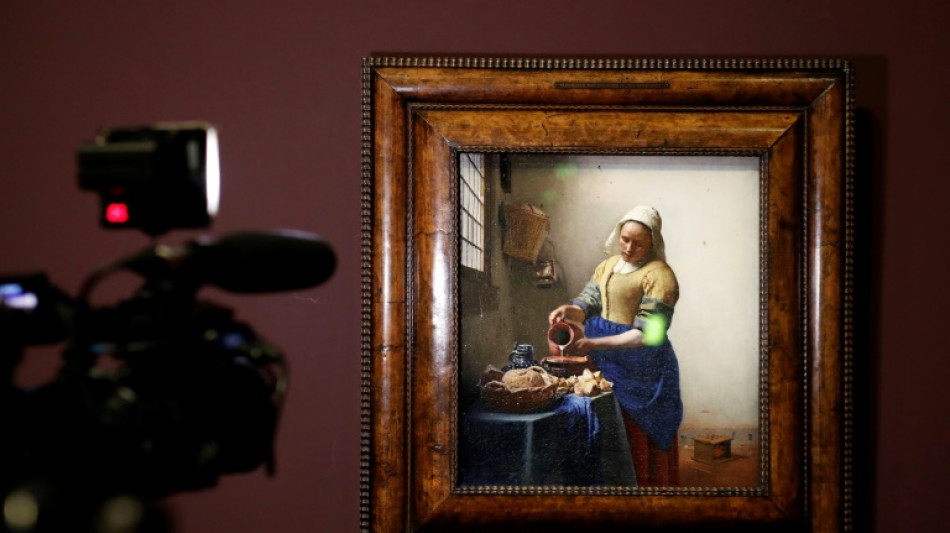
CMSC
0.1178


Experts have found a hidden jug holder and basket in Dutch master Johannes Vermeer's famed painting "The Milkmaid" which he later painted over, Amsterdam's Rijksmuseum said on Thursday.
The discoveries in the work painted some 350 years ago shed new light on the technique of the enigmatic artist, ahead of the largest ever exhibition of Vermeer's work starting at the museum in 2023.
Advanced scanning techniques revealed that beneath the plain white wall that makes the milkmaid's bright yellow and blue clothes stand out, Vermeer had originally painted extra details.
"This reveals a new unexpected Vermeer, it's astonishing," Gregor Weber, head of fine arts and at the Rijksmuseum, told a news conference.
Vermeer's changes mean that the iconic figure of the maid, seen in the painting pouring a stream of milk from an earthenware jug, "stands in front of us in a much more monumental way," he said.
Researchers knew from x-rays carried out around a decade ago that there was something hidden below the layers of paint in Vermeer's milkmaid, but they weren't sure what.
One of the most significant new discoveries unveiled by the Rijksmuseum was that the 17th century artist had sketched out a wooden holder for jugs on the wall just behind the milkmaid's head.
They had previously thought it might be a fireplace, but a new technique called Short Wavelength infrared Reflectance clearly showed the details of the jugs and the wooden frame.
The technique is usually used for industrial inspections and for military purposes.
Further research revealed that such a jug rack was mentioned in Vermeer's estate after his death, while a model of a very similar holder can be seen in a 17th century dolls house in the Rijksmuseum.
- 'Less is more' -
Another key finding was that the previously-spotted shadowy outline of some kind of basket could now be seen to be a "fire basket", woven from willow, which would typically be used to air clothes.
The researchers further discovered a "hastily applied" thick black line of paint underneath the milkmaid's left arm showing that Vermeer had apparently made a swift initial sketch.
All were later painted over by Vermeer in his quest for perfection.
The jug holder was replaced by the stark white wall, while the basket became a much smaller foot stove complete with Delft blue tiles.
The changes he made would be crucial for his later works, including the iconic "Girl with a Pearl Earring" that will also form part of the exhibition.
"These steps had consequences for his whole work which will follow, he learned that less is more," Weber said.
Very little is known about Vermeer (1632-1675), who lived a life of modest means in the historic city of Delft during the Dutch "Golden Age" of painting.
The exhibition running from 10 February to June 4 2023 will feature 27 of Vermeer's small lifetime production of some 35 paintings.
Rijksmuseum general director Taco Dibbits said it was the "first and also the last time that so many Vermeer paintings could be gathered together".
Tickets go on sale on the Rijksmuseum website on Thursday.
L.Davila--TFWP